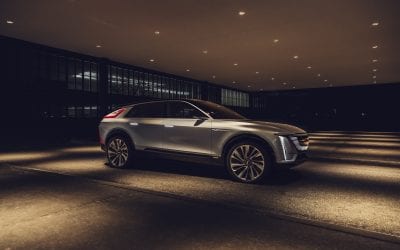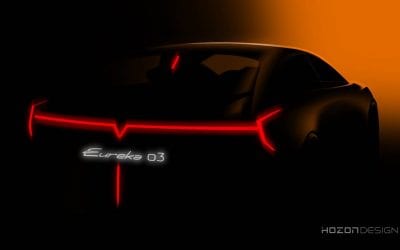The Mazda electric vehicles strategy has been non-existent until late 2016. The Japanese automaker’s strategy up to the time focused on fuel-efficient vehicles. Its SkyActiv technology has been very successful to this end and won the company some awards. The success of the SkyActiv technology, however, clouded the companies vision. The company now realizes as ZEV regulations in States such as California has become stricter and that it would have to develop electric vehicles to comply. As a late entrant to the technology, it will have to partner with others as its competitors are already bringing 2nd and 3rd generation production vehicles to market. Unconfirmed rumors have it that Mazda and Toyota might partner in electric vehicle development.Pictured below is the highly acclaimed CX5 SUV which could form the basis for the company’s first electric vehicle. The FAW Besturn B50 EV is based on the Mazda 6. Mazda clarified its electric vehicle strategy in March 2017. Mazda R&D exec indicated the company is considering an all-electric vehicle to be released in 2019 to compete with the likes of the Nissan Leaf and Renault Zoe. The Japanese automaker will expand its electric vehicle range from 2021 with plug-in hybrid models. Pictured below is the highly acclaimed CX5 SUV which could form the basis for the company’s first electric vehicle.
Mazda announced its connectivity and electrification strategies this week. The strategies are based on the Japanese auto manufacturer’s long-term vision named “Sustainability Zoom-Zoom 2030”. The company said that it will leverage its alliance with Toyota in the development of connectivity and that it will introduce electric vehicles in regions where energy is derived from a high percentage of clean resources. Mazda whishes to reduce its corporate “well to wheel” emissions from 2010 levels by 90% in 2050. Mazda, which does not have a huge capital base will include electrification in some form in 95% of its internal combustion engines by 2030. The Mazda EV strategy targets the production of battery electric vehicles that will account for 5% of its output in the same timeframe. Mazda will also use its patented rotary engines to produce range-extended EVs.
Mazda revealed its launch plan for next-generation technologies this week. In Week 46 of 2017, we reported on the Japanese carmaker to use its rotary technology as a range extender in its EV to be launched in 2019/2020. Interestingly enough Mazda will launch it PHEV model only after its BEV, where most automakers progress to full electric models only after bringing plug-in hybrid versions to market. Currently Mazda’s electrification program centers around its i-stop and i-loop hybrid technologies utilizing negative braking and switching off the engine. Mazda first introduced its rotary range extender technology in the Mazda Demio REEV based on the Mazda 2 in 2012. Mazda’s EV roadmap targets 2035 as the pivot towards electrification as its stick to efficient combustion technology for the foreseeable future.
Four more companies joined the Toyota/Mazda/Denso JV, EV C.A. Spirit Co. Suzuki Motor Corp., Subaru Corp., Daihatsu Motor Co. and Hino Motors Ltd. will each contribute engineers to the project but not take any equity in the company.
The Japanese automaker Mazda is planning to launch electric vehicles (EV) with range-extender rotary engine technology in Europe and the United States from 2019 onwards, reports Nikkei Asian Review. Rotary engine technology, which was first developed back in 1967 by Mazda, can double the range of an electric vehicle and is based on triangular rotors instead of pistons and cleaner to comply with stricter environmental laws globally. Mazda will not be the first to use rotary engines as a range extender, BMW‘s i3 REx also uses rotary technology.
The Tokyo Auto Show will be hosted from the 27th of October to the 5th of November, and we can expect a bunch of combustion and electric concept vehicles from regional producers with the least amount of production electric vehicles. Hopefully, we will see an auto show in Japan in the near future brimming with production-ready electric vehicles, in the meantime here are some of the concept electric and autonomous vehicles which would be displayed at the 2017 event. Other vehicles expected at the Auto Show is Nissan‘s Electric SUV and the Mazda 3 for 2021, which could be available with an electric drivetrain.
Mazda announced its technology development strategy, ‘Sustainability Zoom Zoom 2030’, which targets a 50% emission reduction by 2030. The strategy also targets safety improvements, which speaks to some level of autonomy.
Facing a stronger zero emissions framework in some key markets the company is now forced to consider electric vehicles. The Japanese automaker’s CEO announced during a roundtable discussion to the Wall Street Journal that the company will have an electric vehicle by 2019.

Mazda Electric Vehicles
Mazda Electric Car Strategy in the news
2018 Week 40 Mazda electric car strategy
2018 Week 2 Mazda EV technology

2018 Week 1 More automakers joins the Toyota/Mazda EV project
2017 Week 46 Mazda to develop REEV

2017 Week 42 Mazda at the Tokyo Auto Show

2017 Week 37 Mazda provides direction on its EV strategy
2016 Week 46 Mazda CEO announces its entry into electric vehicles
Top 5 EV News Week 32 2020
Top 5 EV News Week 32 2020 | Cadillac Lyriq unveiled. Yet another Chinese EV startup IPO. Three new EV models launched this week.
Top 5 EV News Week 31 2020
Top 5 EV News Week 31 2020 | Successful IPO for CHJ Auto, Kandi finally enters the USA, Mitsubishi pays the cost for failing EV strategy.
Top 5 EV News Week 30 2020
Top 5 EV News Week 30 2020 | Chengdu Auto Show, Hozon Neta IPO, VW invest in China, eVito Tourer for sale










